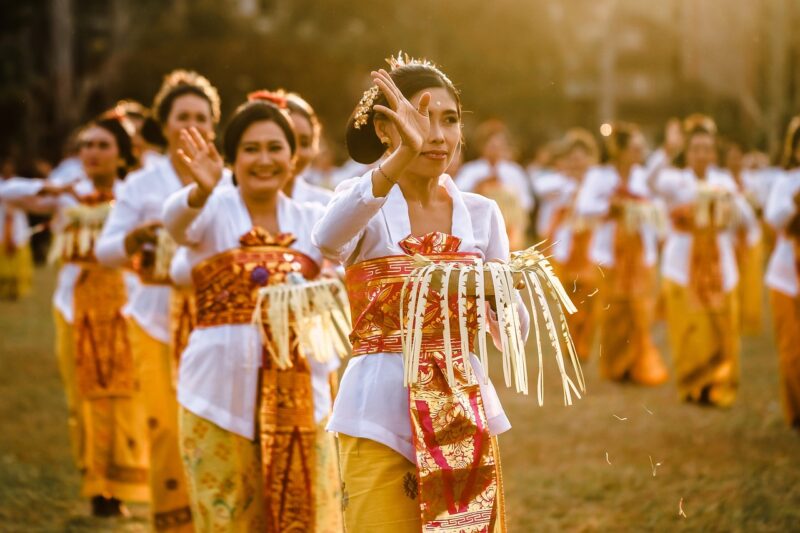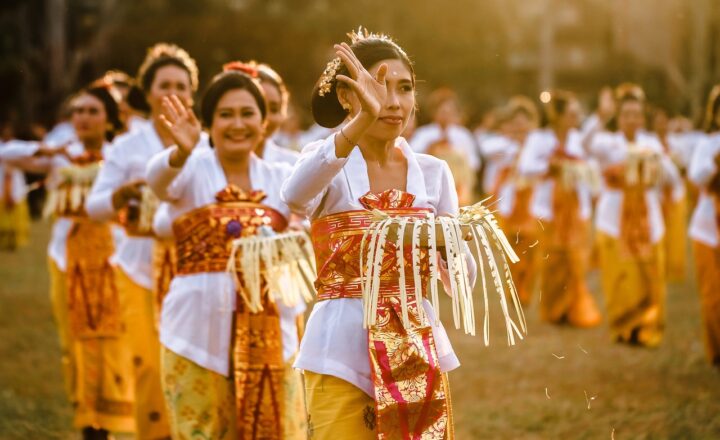The Rich Tapestry of African Culture: Music, Dance, and Festivals Across the Continent
November 13, 2024

Africa, a continent of breathtaking diversity and rich history, is home to a myriad of cultures, each with its unique traditions and practices. One of the most striking aspects of African culture is its music and dance, which reflect the stories, struggles, and joys of its people. From the rhythmic beats of drums in West Africa to the melodic sounds of the mbira in the East, music and dance serve as essential elements in the lives of African communities. Festivals, too, play a pivotal role in these cultures, acting as a celebration of life, heritage, and social cohesion.
1. The Importance of Music in African Culture
Music in Africa is not merely entertainment; it is an expression of identity and a vital means of communication. Different regions boast distinct musical styles and traditions that are often tied to the history and lifestyle of the community.
For instance, among the Zulu people of South Africa, traditional music incorporates vocal harmonies, call-and-response singing, and the use of instruments such as the mbira and drums. The lyrics typically celebrate love and community while often addressing social issues that affect the people. Music also forms an integral part of rituals, such as weddings or ceremonies marking significant life events.
Whether it’s the ululations of women in celebration or the solemn songs during mourning, music is intertwined with the rhythm of life in Africa. Many musicians today blend traditional sounds with contemporary genres like hip-hop and reggae, creating an evolving musical landscape that honors the past while embracing modern influences.
2. Dance: A Language of Its Own
Dance serves as another vital thread in the rich fabric of African culture. It is often seen as a powerful means of storytelling, with each movement symbolizing specific cultural narratives and emotions.
Different societies have unique dances, each share common themes of community, celebration, and mourning. For example:
- The Adamu Orisha Play: A traditional Yoruba dance from Nigeria, performed during festivals to honor the deities and ancestors. It features vibrant costumes and powerful movements that evoke spiritual energy.
- The Umteyo Dance: Practiced by the Xhosa people of South Africa, this dance showcases energy and jubilation and is often performed during significant communal gatherings or celebrations.
- The Lesotho Mohobelo Dance: A traditional dance from Lesotho characterized by synchronized movements and rhythm, emphasizing unity among participants.
Dance transcends spoken language and forms a deep connection among participants, fostering a sense of unity, identity, and belonging within the community.
3. Festivals: Celebrations of Unity and Culture
Festivals in Africa provide a rich avenue for showcasing music, dance, and art, allowing communities to come together in celebration and reflection on their heritage. The vibrant atmosphere of these festivals not only preserves cultural practices but fosters social solidarity.
Some notable festivals include:
- The Timkat Festival (Ethiopia): This epiphany celebration captures the Ethiopian Orthodox Church’s reverence for the baptism of Jesus. It features colorful parades, traditional music, and dance, culminating in the re-enactment of Christ’s baptism in the Jordan River.
- Festival of the Desert (Mali): Held annually in the Sahara, this festival celebrates Tuareg culture with performances, music, and dance from various artists across Africa. It highlights the cultural richness of the nomadic Tuareg people and fosters awareness of their traditions and struggles.
- Durbar Festival (Nigeria): A significant event that marks the end of Ramadan, showcasing the beauty of Nigerian culture through horse displays, traditional music, and colorful attire. This festival strengthens the bonds of unity within the Muslim community and is a grand exhibition of royal splendor.
Most festivals are filled with rituals, food, music, and dance, creating a sensory feast. They offer a glimpse into the traditions and values of African society, from celebrating historical events, commemorating harvests, or honoring the deceased.
4. Music, Dance, and Festivals in Contemporary Africa
While music, dance, and festivals are ancient practices, they continue to thrive and evolve in contemporary Africa. Modern artists often blend traditional sounds with modern genres, appealing to younger audiences while keeping their heritage alive.
These practices also contribute significantly to tourism, with cultural festivals attracting both local and international visitors. Popular events like the Lagos Jazz Series, the Cape Town International Jazz Festival, and the Harare International Festival of the Arts showcase the vibrancy of African music and culture on a global platform.
Moreover, the rise of digital platforms allows artists to share their music with a broader audience, propelling African rhythms and dance into the global spotlight. Social media platforms have enabled grassroots movements to promote local dance styles, allowing the culture to reach new heights.
Conclusion
The richness of African culture is not just found in the continent’s history but is beautifully expressed through music, dance, and festivals. These elements serve as a reminder of the vibrancy of various communities, showcasing their unique traditions and collective identities. As Africa stands at the crossroads of tradition and modernity, its music and dance continue to adapt, yet they remain steadfast in preserving the narratives of its people.
By participating in these cultural experiences, we foster a sense of appreciation and understanding of Africa’s diverse heritage. The continent’s music and dance echo not only the past but also resonate with future generations, ensuring that the rich tapestry of African culture remains vibrant and alive for years to come.








